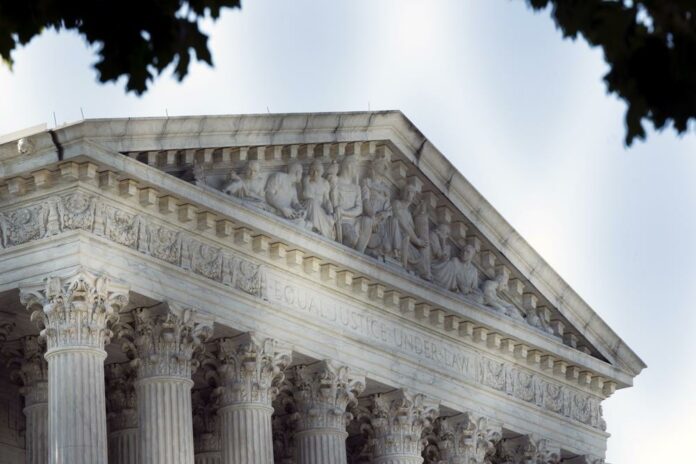
The Supreme Court ruled Tuesday that religious schools can’t be excluded from a Maine program that offers tuition aid for private education, a decision that could ease religious organizations’ access to taxpayer money.
The most immediate effect of the court’s 6-3 decision beyond Maine will be next door in Vermont, which has a similar program.
Chief Justice John Roberts wrote for a conservative majority that the program violates the Constitution’s protections for religious freedoms.
“Maine’s ‘nonsectarian’ requirement for its otherwise generally available tuition assistance payments violates the Free Exercise Clause of the First Amendment. Regardless of how the benefit and restriction are described, the program operates to identify and exclude otherwise eligible schools on the basis of their religious exercise,” Roberts wrote.
The court’s three liberal justices dissented. “This Court continues to dismantle the wall of separation between church and state that the Framers fought to build,” Justice Sonia Sotomayor wrote.
The ruling is the latest in a line of decisions from the Supreme Court that have favored religion-based discrimination claims. The court is separately weighing the case of a football coach who says he has a First Amendment right to pray at midfield immediately after games.
In largely rural Maine, the state allows families who live in towns that don’t have public schools to receive public tuition dollars to send their children to the public or private school of their choosing. The program has excluded religious schools.
Students who live in a district with public schools or in a district that contracts with another public system are ineligible for the tuition program.
Parents who challenged the program argued that the exclusion of religious schools violates their religious rights under the Constitution. Teacher unions and school boards said states can impose limits on public money for private education without running afoul of religious freedoms.
Most of the justices attended religious schools, and several send or have sent their children to them.
In the Maine case, parents sued in federal court to be able to use state aid to send their children to Christian schools in Bangor and Waterville. The schools in question, Bangor Christian School and Temple Academy, are uncertain whether they would accept public funds, according to court filings.
In 2020, the high court ruled 5-4 that states must give religious schools the same access to public funding that other private schools receive, preserving a Montana scholarship program that had largely benefited students at religious institutions.
In that case, the court said states don’t have to allow public money to be used in private education. But they can’t keep religious schools out of such programs, once created.
But even after that ruling, the 1st U.S. Circuit Court of Appeals upheld the Maine program, holding that the state was not violating anyone’s constitutional rights by refusing to allow taxpayer money to be used for religious instruction. The three-judge panel included retired Justice David Souter, who occasionally hears cases in the appeals court.
(AP)
Source: The Yeshiva World